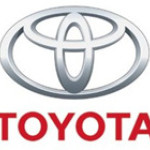- Settore: Automotive
- Number of terms: 3540
- Number of blossaries: 0
- Company Profile:
Class I (light-duty): 2,000-pound maximum trailer weight, 200-pound tongue weight (300 pounds with a weight-distributing hitch).Class II (medium-duty): 3,500-pound-maximum trailer weight, 300-pound tongue weight (up to 500 pounds with weight-distributing hitch).Class III (heavy-duty): 5,000-pound maximum trailer weight (7,500-pound trailer weight with a weight-distributing hitch), 300–500-pound tongue weight (up to 750 pounds with a weight-distributing hitch).Class IV (extra-heavy-duty): 10,000–12,000-pound and above maximum trailer weight depending on the manufacturer (1,000-pound tongue weight with a weight-distributing hitch).Class V: Receiver hitch can be over 12,000 pounds.
Industry:Automotive
Ultra Low Emission II Vehicle meets California Ultra Low Emission Vehicle II and the Federal Tier 2 Bin 5 emissions regulations.
Industry:Automotive
Based on the VVT-i system, the VVTL-i system has adopted a cam changeover mechanism that varies the amount of lift of the intake and exhaust valves while the engine is operating at high speeds. In addition to achieving higher engine speeds and higher outputs, this system enables the valve timing to be optimally set, resulting in improved fuel economy. When the engine is operating in the low- to mid-speed range, the low- and medium-speed cams of the camshafts operate to move the two valves via the rocker arms. Then, when the engine is operating in the high-speed range, the signals from the sensors cause the engine's control module (ECM) to change the hydraulic passage of the oil control valve (for the variable valve lift), thus changing to the operation of the high-speed cams. Now the lift of the intake and exhaust valves increases, allowing the introduction of a greater volume of air-fuel mixture, as well as the discharge of a greater volume of exhaust gases. As a result, the engine operates at higher speeds and higher outputs when the engine is under more strain.
Industry:Automotive
This system selects the ideal intake and exhaust valve overlap under all engine operating conditions. VVT-i virtually eliminates the traditional compromises between low-end torque and high-rpm horsepower. It also helps enhance fuel economy and reduces emissions so effectively that it eliminates the need for the exhaust gas recirculation (EGR) emissions device.
Industry:Automotive
A measurement of cargo capacity. More precise than payload, which factors in optional equipment and people, VCW also factors in accessory weight plus rated cargo and luggage load.
Industry:Automotive
On hybrid models this system anticipates loss of vehicle control in virtually any direction and helps to correct the situation while allowing higher dynamic capability. VDIM constantly calculates vehicle motion based on signals from a yaw rate and deceleration sensor, wheel speed sensors and steering angle sensor.
Industry:Automotive
Traction Control (4-wheel on 4WD models; includes auto limited-slip rear differential function on 2WD models)
Industry:Automotive
Windows Media Audio is a music media format that can be played on vehicles with WMA/MP3 capabilities.
Industry:Automotive
